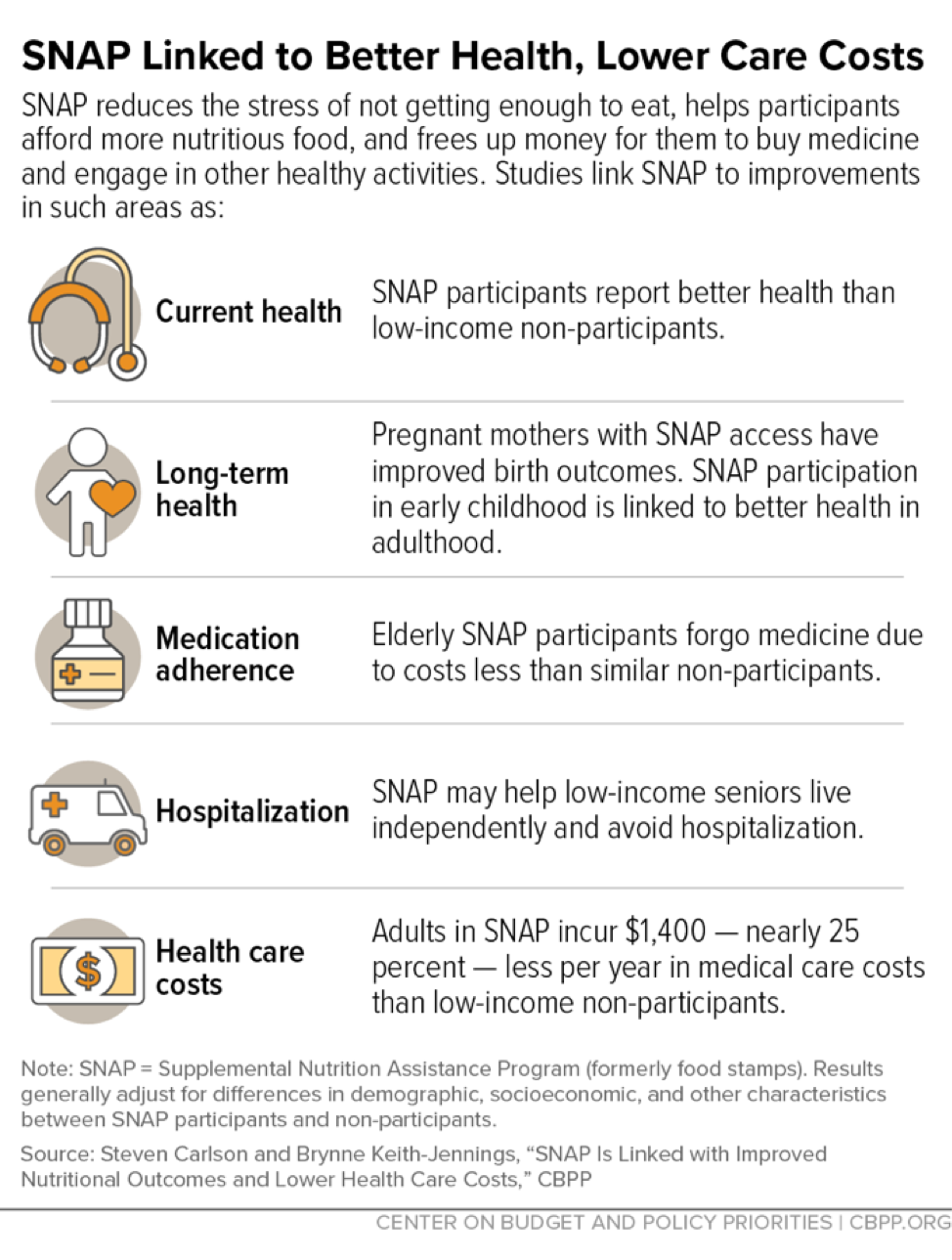BEYOND THE NUMBERS
Though the House rejected the Agriculture Committee-approved farm bill, which includes a number of harmful changes in SNAP (formerly food stamps) that grew even worse through several amendments on the House floor, House leaders reportedly plan another vote in coming weeks. So there’s time to step back and consider SNAP’s accomplishments and how the bill would undermine them. A growing body of evidence links SNAP with improved health across the life span, while there’s little evidence to support many of the bill’s proposals.
Food insecurity — i.e., a lack of access to sufficient food due to cost — can affect health: families that struggle to afford enough food may experience health effects from stress, and they might make tradeoffs between food and medicine or buy cheaper but less nutritious food to stretch their food dollars.
SNAP reduces food insecurity and frees up resources that families can use for needed medical care. Recent research shows several ways in which SNAP is linked with improved health and lower health care costs. (See infographic.)
These findings suggest that shrinking or eliminating households’ SNAP benefits could increase food insecurity and have negative implications for their health. Other evidence further supports this connection. After a 2013 SNAP benefit boost expired, reducing benefits by an average of 16 percent, food insecurity rose significantly among SNAP households. And children receiving SNAP who live in higher-cost areas, where their benefits don’t stretch as far, are likelier to miss school due to illness than those in lower-cost areas, another study found.
In short, growing evidence suggests that SNAP is an important tool for improving health. Many of the new farm bill proposals, in contrast, have little evidence to support them.
The bill would take away benefits from people who can’t document, every month, that they’re working or in a qualifying job training program at least 20 hours a week. Research shows that this approach does little to reduce poverty over the long term and leaves some families worse off. And the bill would reduce states’ ability to develop the kinds of programs that have proven most successful at improving employment — namely, those that offer a range of employment and training and supportive services and are targeted to the people likeliest to benefit from them. The bill also imposes these mandates before states have completed major pilot programs that are underway and would provide more evidence about the effectiveness of employment and training programs for SNAP participants.
In addition, numerous parts of the bill would impose new paperwork requirements on both participants and states, rolling back years of progress in simplifying SNAP that have helped increase participation among eligible people. The bill also mandates that all states require households to cooperate with child support enforcement to receive SNAP benefits, which research suggests would be costly and wouldn’t likely generate significant increases in child support payments. And the amended bill would allow states to contract with private contractors to perform some of SNAP’s core administrative functions such as eligibility determinations, which evidence from Texas and Indiana shows has gone poorly.
SNAP has many benefits for participants, and cutting benefits may increase poverty and worsen health. Lawmakers should craft a farm bill that builds on SNAP’s well-documented strengths, rather than include policies that could harm many based on little evidence.

